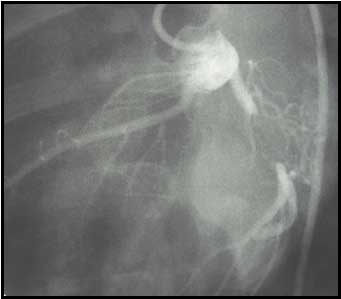




|
|
 |
Basic Research | |||||||||||||||||||||||||||||||||||||||||||||
 |
 |
||||||||||||||||||||||||||||||||||||||||||||||
 |
 |
Neovascularization in mature tissues is a
complex process occurring under different physiologic and pathologic circumstances.
Three different types of neovascularization can occur in mature adult tissues:
angiogenesis, arteriogenesis, and vasculogenesis.
Angiogenesis refers to the formation of thin-walled endothelium-lined structures
lacking muscular smooth muscle wall
Arteriogenesis refers to the formation of medium-sized blood vessels possessing
tunica media
Vasculogenesis refers to the formation of vascular structures from circulating
or tissue-resident endothelial stem cells.
In all cases, new vessel growth
is a culmination of a number of processes including:
Dissolution of the existing extracellular matrix
Migration and proliferation of endothelial and smooth muscle cells
Formation and maturation of new vascular structures
Deposition of new extracellular matrix
A process of this degree of complexity has numerous regulatory check points.
While there is only a limited understanding of these control mechanisms, it
is clear that a number of stimulators, inhibitors, and "facilitators"
contribute to the end result: Mature Blood Vessels
The Angiogenesis Research Center is investigating the fundamental molecular mechanisms underlying the complex process of angiogenesis with several faculty members and post-doctoral fellows stydying a variety of pathways in this process. Current projects involve the role of nitric oxide, role of extracellular matrix proteins, angiogenesis signaling, small molecule stimulation of angiogenesis, cell cycle mechanisms, RTEF-1, stem cell biology, and many other studies to dissect the entire angiogenesis cascade.